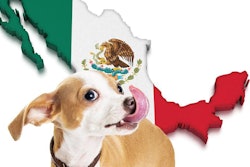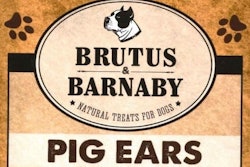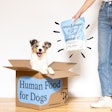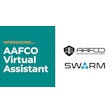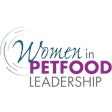
Eggs can serve as dog food protein sources in several ways. In conventional dog foods, eggs serve to fortify an already balanced amino acid blend, said speakers at Petfood Forum China 2019. Secondly, eggs can fill an amino acid gap left by fresh meat, chicken meal and peas in grain-free pet foods, they said. Aside from supporting roles, eggs served as the main protein source in Square Egg, a meat-free dog food introduced at SuperZoo 2019.
Eggs as #1 ingredient in dog food
“This is totally an amino acid story,” said Travis Atkins, DVM, of SquarePet, makers of Square Egg dog food. “We feel that it surpasses not just vegetarian, but meat-based diets in amino acid availability.”
“Came down to looking at vegetarian products and we felt that we could surpass those,” Travis’ brother, Tyler Atkins said. “With egg being the perfect protein source, we felt that would be a good place to start.”
Travis, Tyler and their father, Peter, founded SquarePet, which also makes limited ingredient diets, therapeutic pet foods and other formulations.
Along with eggs, Square Egg dog food’s formulation also includes whey protein concentrate and quinoa. Each of those pet food ingredients provides a complete protein for dogs, meaning they provide the amino acids dogs’ bodies can't make for themselves, Atkins said. The amino acids in those three ingredients are also easily digested, or highly bioavailable. The whey protein, the same as that used by weightlifters and fitness buffs, has other benefits along with providing essential amino acids.
“It’s not going to turn your dog into Arnold Schwarzenegger, but it has those amino acids, as well as it’s rich in branched chain amino acids, which is good for older dogs to maintain muscle mass,” Travis Atkins said.
“It’s a good segue between meat and vegetarian diets,” he said. “It’s also good for rotational feeding.”
Dogs with digestive difficulties may find egg-based diets easier to handle, due to the high bioavailability of the amino acids, he said.
Despite these benefits, egg remains uncommon as a first ingredient or primary protein source in pet foods.
“Egg is such a common food source for us, but when we talk to retailers we get a cross-eyed look, it’s almost like an alternate protein source for dogs,” Atkins said.
Egg in conventional and grain-free dog food formulations
Although rare as a first ingredient, eggs have appeared in pet food formulations for many years. Traditionally, eggs were used as an “insurance protein,” said Ingmar Middlelbos, PhD, of IsoNova Technologies during his presentation at Petfood Forum China 2019. In these conventional formulations made with corn, soy and meat meal, eggs serve as a backstop to ensure all dogs’ amino acid needs are covered.
A third way eggs can be incorporated into pet foods is in grain-free formulations. For grain-free dog foods, eggs provide amino acids that aren’t present in high enough levels in grain-free dog food recipes made with fresh meat, chicken meal and peas, or similar ingredients.
Eggs can serve in these various ways because the amino acid profile of egg protein matches dogs’ biological needs, said Middlebos. Dried egg exceeds the American Association of Feed Control Officials’ 2019 guidelines for amino acid requirements in a proportion that matches dog’s requirements. What’s more, the efficiency of digestion of egg protein exceeds that of chicken meal, green peas, black soldier fly larvae and fish meal.
Because of this, Middlebos echoed the Atkins brothers in calling eggs the perfect protein.
Petfood Forum
To learn more about pet food proteins and many other aspects of the pet food industry attend Petfood Forum. Petfood Forum is a premiere trade show for pet food professionals from around the world to network, exchange ideas and do business with one another and with the industry's leading pet food manufacturers and suppliers. Related events occur around the world, including:




